| |
|

NOW-SUNDAY, SEPTEMBER 7

MONDAY, SEPTEMBER 1

SUNDAY, SEPTEMBER 7

FRIDAY, SEPTEMBER 12, 2008 Temple Solel S'more Shabbat
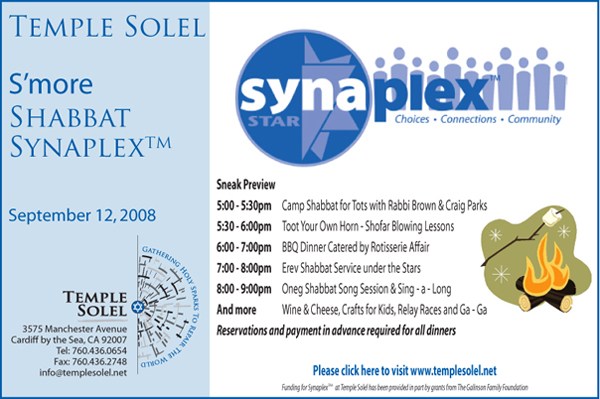
________________________________________________________
MON., SEPT. 29-THURS., OCT. 9


LETTER FROM JERUSALEM
Their limited knowledge does not prevent 'intellectuals' from Middle East punditry
By Ira Sharkansky
 JERUSALEM--When ordinary people and professional intellectuals have limited understanding of an issue, it is tempting for them to express what has become the conventional wisdom. If lots of people are saying it, it must be all right. JERUSALEM--When ordinary people and professional intellectuals have limited understanding of an issue, it is tempting for them to express what has become the conventional wisdom. If lots of people are saying it, it must be all right.
By professional intellectuals I mean professors and media commentators, expected to know, and viewed as at least minimally authoritative. Some of these people move in and out of governmental positions, or communicate frequently with officials, and this adds to their aura of understanding.
As an American who has become also an Israeli, lived and worked here for more than 30 years, I may be unusually sensitive to elements of conventional wisdom that come largely from professional intellectuals in the United States, and concern the region that I now call home.
I am aware that the conventional wisdom is not all the same. There are different perspectives. The West is intellectually free. There is room in the universities, government, and the media for widely different points of view. Remembering the diversity is the best defense against paranoia, or even worry. Nonetheless, there are elements of the conventional wisdom that invite a response.
Landmarks are Jimmy Carter's Palestine: Peace Not Apartheid and John Mearsheimer and Stephen Walt's The Israel Lobby. Both were widely panned as bad books, but sold enough copies to be called best sellers. Both reflected and added to the conventional wisdom that Israel was a significant part of the world's problems. Do away with the cruel policies toward Israeli Arabs and Palestinians, reduce the influence of Israel's supporters in American politics, and all will be better.
Alfred de Grazia had a distinguished career as professor of political science. Now, at the age of 89, he has produced Canaan State, U.S.A.: Israel-Palestineas the 51st American State. Perhaps because no main-line publisher was willing to produce it, de Grazia is distributing it free over the internet.
I admit to not having the patience to do more than page through the book. Its message is clear: solve the problems of the Middle East by combining Israel and Palestinian areas into one entity. Call it Canaan and accept it as the 51st American state.
I received de Grazia's e-mail, with the book attached on the 9th of Av. It was not the wisest move to send it to Israelis on the date that memorializes the destruction of the Temples and Jerusalem by the Babylonians in the sixth century BCE, and again by the Romans in the first century CE.
The timing added to the content to make clear that de Grazia wants to destroy the Jewish homeland once again.
Yet another indication of Israel's demonized role in the conventional wisdom appears somewhere down in a negative New York Times review of Kenneth M. Pollack's A Path Out of the Desert: A Grand Strategy for America in the Middle East. The reviewer chastises Pollack for what he does not write: that Palestinians' "agony of military defeat or the humiliation of life under Israeli occupation" is an important element in the problems of the Middle East. The reviewer bolsters his case by accepting a claim of Osama bin Laden. "What converted him from dreamer to murderous activist was Israeli bombs falling on Beirut in 1982."
The people of Israel have survived worse in our long history. However, I must ask my colleagues among the professional intellectuals to look at some details. Of the 100 or so countries that came on the scene after World War II Israel is, arguably, the most successful. Its democracy is the most vibrant, and its economy the healthiest. Israel's Arab minority does better on measures of income and health (absolutely or in relation to the Jewish majority) than the prominent ethnic and racial minorities in the United States. If Israel imposes restrictions on the movement of Palestinians in Gaza or the West Bank, the reasons should be clear to anyone with an open mind. Israelis cannot rely on the Palestinians to control those among them who aspire to violence against Israelis.
Is this a country that should be erased via a merger with not-so-successful Palestine? Canaan is ancient history. From what we know of it from a few sources, its name would not add to what Israel has achieved in the most recent 60 years.
I would not defend every action of personnel in the Israeli military or police, just as I would not expect people of other countries to defend all that their security people do by intention or accident. I would urge comparisons of civilians killed by Israeli forces to those killed by Americans and their allies in Vietnam, Iraq, and Afghanistan.
There are also Israelis in the media and the universities who express the same conventional wisdom as their colleagues overseas. They all make me itch, as with poison ivy. It can be annoying in the extreme, but is not likely to be fatal.
Sharkansky is professor emeritus of political science at Hebrew University. He may be contacted at msira@mscc.huji.ac.il


.jpg)

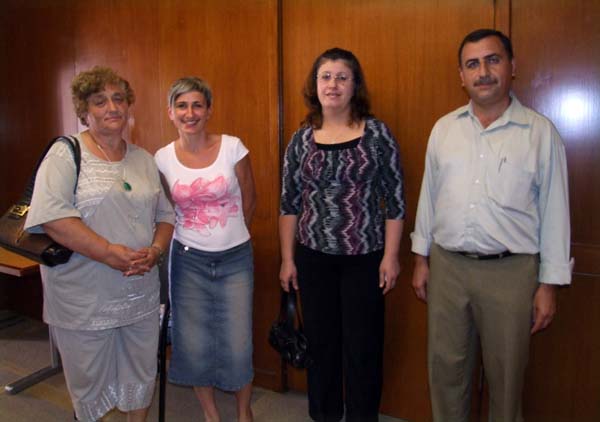
THE JEWISH CITIZEN
JFS showcases its service to refugees
at New American Museum reception
By Donald H. Harrison
 SAN DIEGO--Of all the Jewish Family Service agencies throughout the United States, San Diego’s has become the top agency in resettling refugees, its 250 clients per year greater than the number being resettled in such large cities as New York, Los Angeles or San Francisco. SAN DIEGO--Of all the Jewish Family Service agencies throughout the United States, San Diego’s has become the top agency in resettling refugees, its 250 clients per year greater than the number being resettled in such large cities as New York, Los Angeles or San Francisco.
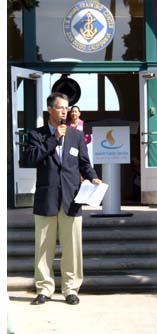 Marking this aspect of its work, Jewish Family Service held a reception on Sunday, August 24, for its donors at the former Naval Training Center, where the New American Museum celebrates the stories of immigrants to the United States. Featured speakers at the gathering were representatives of two refugee families whom JFS has helped settle in the San Diego area—one a Jewish family from the Ukraine, the other a Christian (Chaldean) family from Iraq. Ron Zollman (pictured at right), JFS president, served as emcee. Marking this aspect of its work, Jewish Family Service held a reception on Sunday, August 24, for its donors at the former Naval Training Center, where the New American Museum celebrates the stories of immigrants to the United States. Featured speakers at the gathering were representatives of two refugee families whom JFS has helped settle in the San Diego area—one a Jewish family from the Ukraine, the other a Christian (Chaldean) family from Iraq. Ron Zollman (pictured at right), JFS president, served as emcee.
JFS staff member Akhlas Butrus interpreted for Bassam Puffrus and his wife, Basila, who immigrated to the United States from Iraq, after spending five years in a refugee camp in Jordan, where he was not permitted to get a job nor were their children permitted to go to school.
Puffrus, a Christian, said that Islamic extremists burned down both his store and his home in Iraq, but that he was consoled by the fact that he and his family were able to escape with their lives to the Jordanian refugee camp. It was hard in the neighboring Arab country, but after arriving last April in San Diego County, where there is a large Iraqi Christian (Chaldean) community centered in El Cajon, his life took a turn for the better.
Every step of the way, he said, Jewish Family Service was by his side, helping him and his family adjust to life in the United States. “We were worried because we did not know how to manage in a new country without knowing the language,” he said. “We have been helped by JFS… two days before we left Jordan, my wife had broken her arm and needed medical attention immediately; our case manager arranged for her to spend more than three days at UCSD medical center.”
He also said that thanks to the JFS, their children were able to enroll in schools, the family was able to receive various financial benefits, and he and his wife were able to focus on studying English as a second language. “The English classes are important to us as we want to find work as soon as possible, so that we can take care of our family without other support,” he said. “Our goal and hope for the future is to start our new and own business…become successful and be able to help other newly arrived refugees build a life.”
Puffrus added that “we always feel confident and safe with the knowledge that we can call JFS with any question…that we need advice or assistance with.” He added: “For the first time in years, we have a place we can call home.”
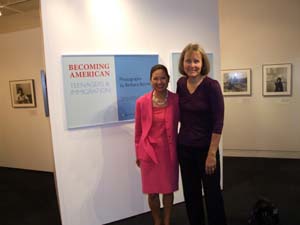 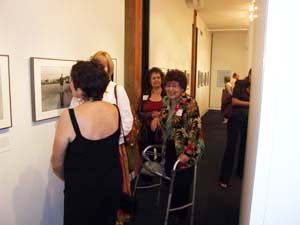
Jill Borg Spitzer, JFS chief executive officer, commented that the Chaldean community—which originally lived in the part of Iraq from which the biblical patriarch Abraham set forth on his journey to the land God promised to show him —now numbers approximately 50,000 in the greater San Diego area.
She said that for JFS, a benefit of rendering assistance to the refugees is an opportunity to build better relations between the Jewish community and other communities, in this case Christians of Iraqi origin. She said other refugee clients of JFS are Muslims, who provide another opportunity for building better inter-communal relationships.
Valeriya Horondi, and her mother Ira Gorondi, are from the Ukraine, where through much of their lives they encountered anti-Semitism that blocked them from getting some jobs and being promoted in others. The daughter said that even her non-Jewish husband suffered job discrimination after his boss learned that he was married to a Jew.
Without benefit of interpreter, she told the group gathered outside the headquarters building of the NTC Foundation, which neighbors the New American Museum, that through much of her life she tried to prove to other Ukrainians that “being of Jewish nationality doesn’t mean that you are worse than everybody else.”
Her family researched on the Internet opportunities to emigrate, eventually finding Jewish Family Service which helped them get started on the process. After the family's arrival here, JFS helped Horondi's mother find a doctor, helped her husband get a job, and helped her enroll at Grossmont College where she took English as a second language, as well as some classes in accounting, the field in which she worked in the Ukraine. She said she is proud that her son is doing well in school.
“We hope to open our own business,” she said, and told how appreciative she is that through Jewish Family Service, they may be eligible to obtain a loan to do just that.
Since arrival in the United States, “we have been participating in Jewish celebrations such as Chanukah and Pesach, and we are tasting Jewish foods which are very interesting,” she said. “Now I do matzo balls at home,” she added. “I like it and my kids like it, and I am happy that they can try it.”
She said that she hopes to get a job soon, “and in the future I will be a citizen of this free country, and it is very important to me for people to be free and to have a good and a free family… What our family has here … was with the help of Jewish Family Service, and we are very lucky to be here. Jewish Family Service supports us…. and they smile.”
After warm applause for both families from the donors, Spitzer remarked that Horondi, who gave the speech on her own, had spoken very little English when she first arrived in San Diego about two years ago.
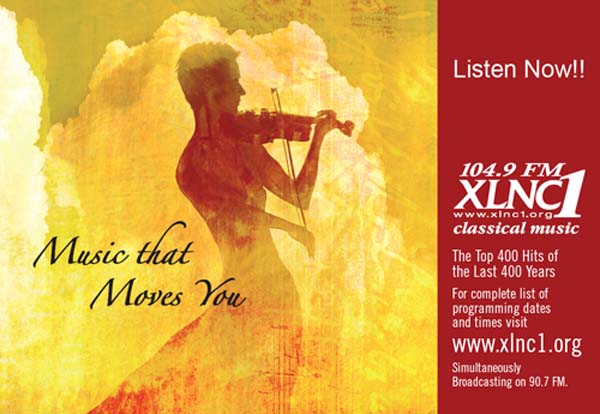

L.A. BEAT
The future in The Pavilion just goes on
By Cynthia Citron
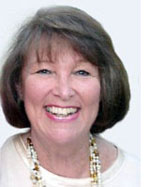 LOS ANGELES—As the Jewish comic Mort Sahl used to say, “The future lies ahead!” That seems to be playwright Craig Wright’s message as well. Except that he takes more than two hours to say it. In his 2000 play The Pavilion, Wright ruminates about time. About how you can’t reverse it. And you can’t go back in it. And how you have to live in the present and not in the past—no matter how different you would live it if you could live it again. And any other permutation of that sentiment that you can fill up two hours with. LOS ANGELES—As the Jewish comic Mort Sahl used to say, “The future lies ahead!” That seems to be playwright Craig Wright’s message as well. Except that he takes more than two hours to say it. In his 2000 play The Pavilion, Wright ruminates about time. About how you can’t reverse it. And you can’t go back in it. And how you have to live in the present and not in the past—no matter how different you would live it if you could live it again. And any other permutation of that sentiment that you can fill up two hours with.
Wright writes beautifully, and some of his soliloquies border on the Shakespearean in tone. “This is the way the universe begins,” he has his Narrator (Chris Smith) intone. A suitably profound beginning, you would think. But the setting is more prosaic: the 10th reunion of the high school class of 1998, to which Peter (Tim Hamelen) has returned in hopes of reconnecting with the sweetheart, Kathi (Kristin Chiles), he left pregnant at 17.
He has never stopped loving her; she has never forgiven him. And so they battle it out in the pavilion, a building that is a relic of their high school days that is scheduled to be demolished when the reunion is concluded. A not too subtle metaphor for the devastation wrought by time. The pavilion is a “repository of memories” peopled by the adult versions of the teen-agers they used to be. All played by the Narrator in a series of outlandish wigs and instantaneous changes of dress and voices. Many of them give Kathi advice, thinking it sweet that she and Peter, “the cutest couple in their high school class” are getting back together again. This despite the fact that Kathi has been married to a rather boring golf pro for many years.
Chiles plays Kathi angry and shrill. Hamelen plays it dorky. He rhapsodizes about the “unreachable beauty of the universe” and tells her “there you are---the world!” Meanwhile the Narrator, as a cynical classmate, advises her that “When you forgive a man, you lose yourself.”
“Life sucks the feelings out of us,” Kathi moans, and “bearable is the best we can hope for.” And finally, expressing her fears, she says, “Life is so wild, how am I ever going to keep up?”
Chris Smith, the Narrator, when he isn’t rushing in and out as a series of ditzy reunion participants, expresses banal profundities about time—including a thumbnail history of evolution—and with a snap of his fingers, directs the lighting, drops a globe from the ceiling, cues the music, and causes the strobe-light ball to rotate on the dance floor.
Obren Milanovic, who has worked with Playwright Wright before (on Orange Flower Water) directs this Los Angeles premiere of The Pavilion with a rather loose hand. Dan O’Brien does the lighting, Steve Sanchez the costumes, and Jesse Laks the sound. But in the end, it’s the writing that counts, and even though this play has been praised by many critics and was nominated for a Pulitzer Prize, in my view, while Craig Wright tells us everything we need to know about time, his play, unfortunately, only demonstrates how to waste it.
The Pavilion will continue at The Lyric Theatre, 520 North LaBrea Ave. in Los Angeles, Thursdays, Fridays, and Saturdays at 8 and Sundays at 3 through October 5. For reservations, call the box office at (323) 939-9220.
.


JEWISH LICENSE PLATES
NEW YORK—Bill Swersey spotted the license plate pictured below on 5th Avenue in New York City last week. "Feigele" in Yiddish means a little bird, but in modern times the term has come to be used to mean a "gay man." It also used to be a popular woman's name. So the driver of this car likely is either a woman named Feigele, a bird lover, or is an advocate of gay pride.
Whatever the case may be, we're happy to add the image to our permanent collection of Jewish license plates. The woman's name "Feigele" appears today in the first item, headlined "Jewish Labor Committee" in our "Adventures in San Diego Jewish History" column below.
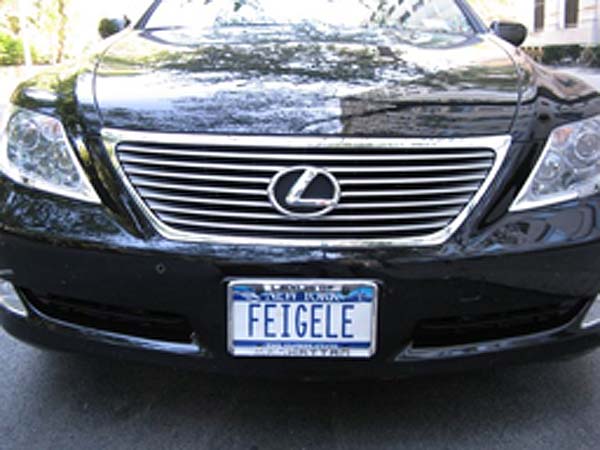





REFLECTIONS
A private concert on a sultry Philly night
By Sheila Orysiek
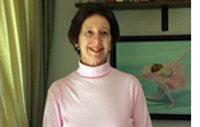 SAN DIEGO—When I think of the summers of my childhood in Philadelphia I remember most of all the enervating heat. The city has two rivers which flow through it and is therefore not only hot, but also extremely humid. In the 1700’s yellow fever was a problem. That is gone now, but the heat and humidity remain. It is a city of distinct neighborhoods many of them very old with row after row of attached houses on tiny streets where it would be difficult for two horse drawn wagons to pass one another. It is impossible for automobiles. SAN DIEGO—When I think of the summers of my childhood in Philadelphia I remember most of all the enervating heat. The city has two rivers which flow through it and is therefore not only hot, but also extremely humid. In the 1700’s yellow fever was a problem. That is gone now, but the heat and humidity remain. It is a city of distinct neighborhoods many of them very old with row after row of attached houses on tiny streets where it would be difficult for two horse drawn wagons to pass one another. It is impossible for automobiles.
The people who built these houses used the materials they were accustomed to from Europe: red brick and brownstone. This is a fine way to ward off the cold winter winds but it is quite another matter during the hot summer. All through the long day the houses absorbed the sun’s rays and became truly brick ovens by night. It was impossible to sleep indoors on many nights of the summer before there was household air conditioning so wherever possible people spread mattresses on rooftops or secluded porches. However, on the streets of row houses that stood lined up like teeth, cheek by jowl, the only respite was to sit on the sidewalks.
By the late 1940’s my family had moved several blocks away from the old neighborhood to what was euphemistically called the suburbs. In reality the only difference between the new houses and the old, was a patch of lawn in front of each doorway. On a warm summer evening, when remaining indoors was so very uncomfortable, everyone would gather together outside sitting on lawn chairs as soon as the sun went down. The conversation ran the gamut of human communication; sometimes happy, sometimes sad. Mostly, though, it was happy. The long hot day was over and the temperature outside had dropped a degree or two.
Several dozen people would sit in a rough circle, another such group further on down the long street and on and on, I’m sure, throughout the city. With a lot of chatter, a great deal of laughter, stories, true and untrue, were exchanged and probably embellished. The children trotted around capturing fireflies which when put in a jar twinkled like toy lanterns. There was also a lot of slapping at hungry mosquitoes, which did no good at all; Philadelphia’s mosquitoes are a particularly veracious lot.
As the evening wore on the smaller children curled up on the grass under their mother’s chairs and fell asleep while the slightly older children quieted down and listened to the conversation of the adults. Approximately nine months of the year when the city was cold and rainy we lost contact with our neighbors, shuffling under heavy winter clothes from heated car to heated house. So the summer evenings were also a time to renew connections with the people who lived around us and catch up on the happenings in our lives.
The neighborhood in which I lived was overwhelmingly Jewish as was the celebrity who lived next door to us. One would never guess this unassuming, short, balding, quiet man was an artist of the first rank. He was first violist in the magnificent world renowned 108 year old Philadelphia Orchestra. The conductor at the time was Eugene Ormandy, another member of the Jewish community, as was the first flutist – who lived up the street and sat with another group of neighbors.
On one particularly memorable summer evening, as the younger children fell asleep and the others were busy being quiet, my mother turned to our revered musician neighbor. She carefully explained how for the past several years she had listened to him practice his scales for hours every day. She quickly added that she didn’t mind - she knew he needed to practice. But, she said, couldn’t he, just this once, after all these years, play something for us?
Without a word he stood up and went into his house. The silence in the group was audible - everyone hoped he had not been offended. Then, after several minutes he came outside with his viola. As we sat in that circle, he stood in our midst and drew his magic bow across the instrument and from it came a glorious stream of sound. It was anything he wanted it to be - laughter or lament. The wooden box cradled in his arms danced and cried and the music drifted off on the heavy evening air and when he had finished everyone sat silently, applause was not needed.
I think about that wonderful evening now that I am here in California. So many summer nights are spent inside our houses with the music from the air conditioners humming and the television on or perhaps we sit in our backyards with a high fence separating us from our neighbors. The technology is better but I am not sure life has improved.

ADVENTURES IN SAN DIEGO JEWISH HISTORY
Editor's Note: To create a permanent and accessible archive, we are reprinting news articles that appeared in back issues of various San Diego Jewish newspapers. You may access an index of the headlines of those articles by clicking here. You may also use the Google search program on our home page or on the headline index page to search for keywords or names.
Jewish Labor Committee
From Southwestern Jewish Press, December 2, 1949, page 6
The Jewish Labor Committee of San Diego are (sic) holding a dinner and concert in honor of Benjamin Tabachinsky, well-known leader in Jewish life and National Director of the Jewish Labor Committee.
This noteworthy affair will take place on Sunday evening, December 4th, 6:30 p.m. at Temple Center, 3rd and Laurel Streets.
The beloved and nationally known artist Feigele Panitz, soprano, will entertain with her charming interpretation of Yiddish and Hebrew sons. Accompanying her on the piano will be the talented Miss Eugena Bruman.
A delicious home cooked Turkey Dinner will be served, at a nominal price.
For reservations call B. Feinberg, M-6598; A. Shelley, J-2506 or M. Penn, H-8-2757.
Temple Senior League
From Southwestern Jewish Press, December 2, 1949, page 6
The next meeting of the Temple Senior League will feature a noted San Diegan as guest speaker. The meeting, which takes place on Thursday, December 8th at 8:00 p.m. in Temple Center at 3rd and Laurel Streets, will have Mr. J.C. Paderewski speaking on “Americanism and Statism”
An inspiring speaker, Mr. Paderewski will treat this controversial topic in a fascinating discussion.
A well planned social hour will included polished acts by a “Barber Shop Quartet” and a “Hillbilly String Trio.”
A short business session to complete plans for a novel Klondike party—“Chanukah in the Yukon” will precede Mr. Paderewski’s talk. The Klondike party will take place at the next regular meeting of the Temple Senior League.
‘Hay in Your Hair’
From Southwestern Jewish Press, December 2, 1949, page 7
By P. Kaufman
Members of the Temple Junior League and their guests had the mostest fun on their hayride November 26.
The group of approximately 60 girls and boys met at the Temple Beth Israel at 6:30 to organize and from there went to the Palomar Stables. At the stables they piled into 2 horse-drawn wagons loaded with hay and made themselves “cozy” for the ride.
The evening’s fun was climaxed by a weenie roast and dancing at the Stable’s Clubroom.
Accompanying the kids were Rabbi Cohn, Leon Heiman, Morris Douglas and Jack Weiner, who, along with the help of the weatherman, made it a wonderful evening.
T.Y.L ‘Hello Dance’
From Southwestern Jewish Press, December 2, 1949, page 7
By Joel Goldfus
“Hello” is the password into the T.Y.L. sponsored dance on Saturday night, December 10th. All high school students are invited to take part in the guaranteed good time.
The dance will be held at Temple Beth Israel, 34d and Laurel, from 8 p.m. till 12 a.m. No admission fee.
Sports clothes will be the style for this evening of entertainment and fun. Refreshments will be there, too—how about you?
Remember the date…December 10th.
‘What’s Cookin’ at Troop 99?’
From Southwestern Jewish Press, December 2, 1949, page 7
‘What’s Cookin?’ Plenty is the answer.
Scoutmaster Dave Sugarman has been doing a fine job leading the Scout Troop 99. If you are eleven years of age and don’t belong, you’d better join now before you miss more of the fun. As a matter of fact, if you are a little younger, you can join and start preparing for your “Tenderfoot Requirements.”
What boy doesn’t want to learn boxing? Assistant Scoutmaster Isadore (Rube) Rubin has been doing wonders with the boys in that field. If your local group would like to see he Scouts of troop 99 put on a boxing show, just contact Rube.
The Troop plans to go swimming once each month, starting December 2nd, and the Pool at the “Y” located at 8th and C, has already been reserved for that night. All new boys are invited to this affair, so come on down, all you fellas and learn to swim.
At present the Scouts are learning First Aid from an expert.
In order to keep things humming, active adult leaders are needed. If you are 18 yrs. or over, have a sincere interest in helping to develop good citizenship and sportsmanship in our boys, get down to the next meeting of the Troop, held every Wednesday night at 7:30 p.m., in the social room of Congregation Tifereth Israel. This is one job you will find pays off in fun and satisfaction in sponsoring one of the most wonderful movements for boys in the U.S.A.
{Return to top}



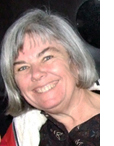 Nancy Harrison Nancy Harrison
cruise & tour specialist
(619) 265-0808
.

SAN DIEGO JEWISH WORLD THE WEEK IN REVIEW
International
Do missile defense systems really defend? by Ira Sharkansky in Jerusalem
Cracks appear in U.S.-Israel alliance against nuclear Iran; what is trigger point for attack? by Shoshana Bryen in Washington D.C.
Campaign 2008: Senator Obama and his positions on Israel by Ambassadors Dennis Ross and Daniel Kurtzer
Judaism
Judaism's tradition of putting study first by Rabbi Leonard Rosenthal in San Diego
Remembering Rav. Henach Leibowitz by Rabbi Baruch Lederman in San Diego
San Diego County
First Shabbat in Emanu-El's new hom; 'We are finally facing Jerusalem' by Sheila Orysiek in San Diego
Tall ships on parade on San Diego Bay by Dan Schaffer in San Diego
San Diego History
—December 2, 1949: San Diego Birdie Stodel Chapter B’nai B’rith by Bess Borushek
—December 2, 1949: Women’s Auxiliary, San Diego Hebrew Home for the Aged
— December 2, 1949: Council of Jewish Women
— December 2, 1949: Hadassah
Sports
The embarrassment of Israel's 'pro' baseball by Donald H. Harrison in San Diego
A bissel sports trivia with Bruce Lowitt in Clearwater, Florida
by Donald H. Harrison in San DiegoSan Diego HistoryDecember 2, 1949:December 2, 1949:December 2, 1949:December 2, 1949:
Arts
SDSU professors probe common origins, traditions of Christianity and Judaism by Fred Reiss in Winchester, California
Thursdays With the Songs of Hal Wingard:
—#45, Love Is The Promise
—#95, Love Is So Elusive
—#174, Porcelain Love
San Diego History
'Adventures' column provides overview of San Diego's Jewish community in late 1940s by Donald H. Harrison in San Diego
Adventures in San Diego Jewish History; articles from the archives
—December 2, 1949: Who's New?
—December 2, 1949: J.C.R.A. by Jeanne Camiel
—December 2, 1949: San Diego Lasker Lodge B’nai B’rith
—December 2, 1949: Temple Men’s Club
International
Former American, now an Israeli, finds faults with both Obama and McCain by Ira Sharkansky in Jerusalem
Former captive nations want to be in NATO by Shoshana Bryen in Washington, D.C.
The Jews Down Under, a roundup of Australian Jewish news by Garry Fabian
—Israeli, Aussie paramedics share knowledge
—High honour for Australian community leader
—Australian Government denies policy shift on Israel
—Maccabi provides Jewish sporting and social networks
—Security concerns about latest technology
—Toben awaits verdict
—Gold Coast school shuts its doors
—Professionals providing community support
—The Promised Land Down Under
—Vorchheimer settles civil claim against authorities
—The Keeper of Memories
Adventures in San Diego Jewish History
—November 18, 1949: American Jewish Congress
—November 18, 1949: Cottage of Israel
—December 2, 1949:Mordecai Kaplan To Be Honored in Los Angeles
—December 2, 1949:Agency Authorizes Fund Campaigns
—December 2, 1949: Beth Jacob P.T.A.
San Diego
Jewish stories at the foot of a hospital bed by Donald H. Harrison in San Diego
Letters
Touching the Soul author touched by review, letter from Max Fallek
Adventures in San Diego Jewish History
—November 18, 1949: Temple Senior League
—November 18, 1949: Temple Beth Israel P.T.A.
—November 18, 1949: Bankruptcy faces Israel, declares Christian minister
—November 18, 1949:Hadassah
—November 18, 1949: Junior Pioneer Women
—November 18, 1949: Temple Beth Israel
International
'Best school in Israel' a matter of survival for planned Sha'ar Hanegev High School by Ulla Hadar in Sha'ar Hanegev, Israel.
San Diego
Why ducks are wary—but not necessarily intimidated—by those human critters by Sheila Orysiek in San Diego
Arts
Surviving and transforming in widowhood, book review by Donald H. Harrison in San Diego
Adventures in San Diego Jewish History
--November 18, 1949: Plans Country Fair For Temple Sisterhood
--November 18, 1949: San Diego Birdie Stodel Chapter B’nai B’rith
--November 18, 1949:Addleson Calls Meeting For Home
--November 18, 1949: 35th Anniversary Observed by Jolly 16
--November 18, 1949:Tifereth Israel Sisterhood
-November 18, 1949: Hadassah Study Group
Link to previous editions
< BACK TO TOP
Copyright 2007-2008 - San Diego Jewish World, San Diego, California. All rights reserved. |
|

